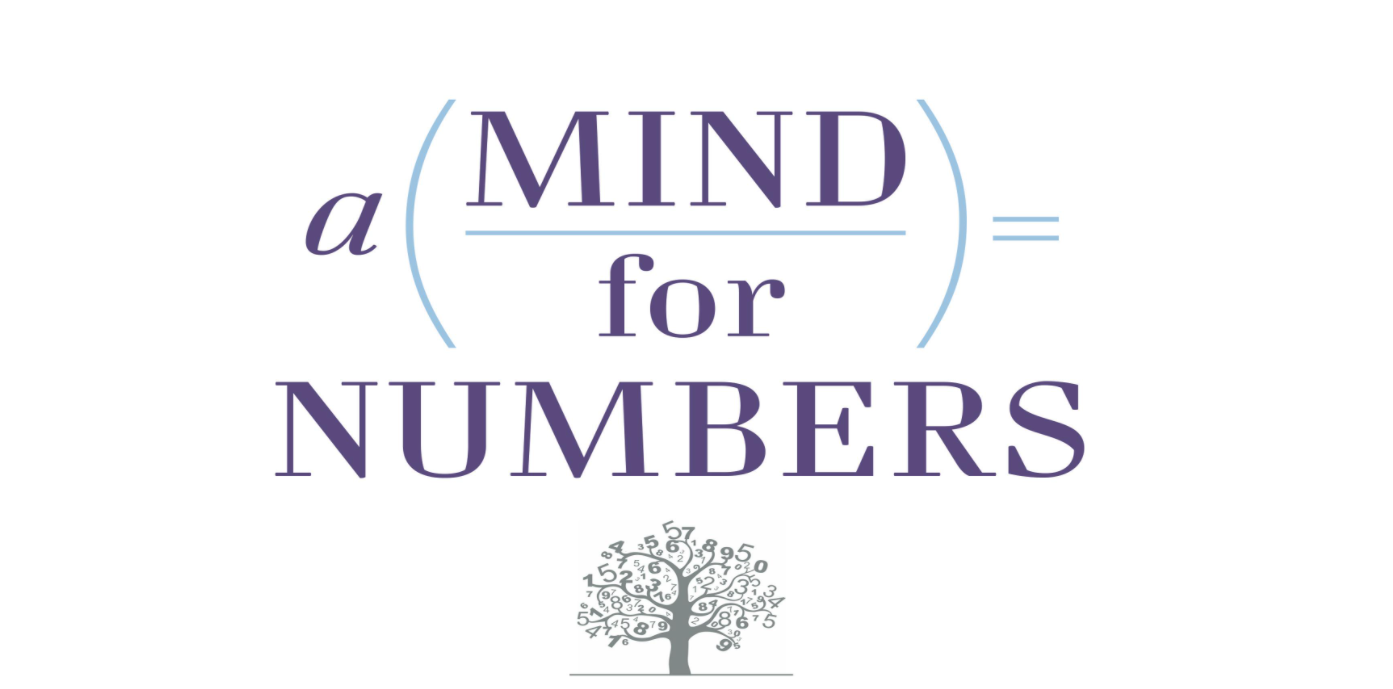Notes from A Mind for Numbers: How to Excel at Math and Science

Below are the notes from the book by Barbara Oakley - A Mind for Numbers: How to Excel at Math and Science.
There are two thinking modes - focused mode and diffuse mode.
Focused mode is when the brain is in highly attentive state, whereas diffuse mode is when the brain in more relaxed resting state.
If you are trying to understand or figure out something new, your best bet is to turn off your precision-focused thinking and turn on your big picture diffuse mode.
Diffuse-mode thinking is what happens when you relax your attention and just let your mind wander.
This relaxation can allow different areas of the brain to hook up and return valuable insights.
Use Pomodoro Technique to avoid procrastination.
However I found it very useful when I am exceptionally lazy or not motivated and try to avoid work at all costs. In those cases the commitment to work for 25 mins without interruption helps a lot.
I tried several apps and browser extensions and I liked the most the Forrest, where you grow a virtual tree which dies if you interrupt the committed time for work/study.
It’s best to work on math and science in small doses - a little every day. This will allow both modes to do the thing.
Spaced repetitions help move items from working memory (RAM of brain) to long-term memory (hard drive of brain).
Conceptual chunk - mental leaps that unite separate bits of information through meaning. Chunking the information you deal with helps your brain run more efficiently.
If you don’t understand a method presented in a course, stop and work backward.
Find who first figured out the method or first used it. Understand why the idea came to mind and why is it used now.
We procrastinate about things that make us feel uncomfortable. We prefer doing something that make us feel good temporarily, but not good in long run.
Develop good habits - they are important and powerful because they create neurological cravings.
Reward yourself - do you like checking Facebook/Gmail first thing after you wake up? Set a timer for 10 mins of work first thing instead - then reward yourself with online time.
called Dual n-back.
You can try to do that for ten minutes every morning after waking up before rewarding yourself with online time.
When you feel the urge to check your phone, pause and examine the feeling. Acknowledge it. Then ignore it.
Practice ignoring distractions. It’s far more powerful technique then trying not to feel those distractions.
To avoid procrastination - focus on process, not product.
Big tasks make us feel uncomfortable, causing procrastination.
Focus just on working on task, not completing it.
You as well let yourself to back away from judging yourself (e.g. asking yourself am I getting closer to finishing?).
Practice self-experimentation. If you plan to try something new - add a bit of science to it.
Dr. Seth Roberts first self-experimented with his acne.
A dermatologist had prescribed tetracycline, so Roberts simply counted the number of pimples he had on his face with varying doses of
tetracycline. The result? The tetracycline made no difference on the number of pimples he had!
On the other hand, benzoyl peroxide cream did work.
Blindly following passion without rational analysis made students over the past decades more unhappy.
I was not good at math, but as a result of rational considerations, I became willing to get good at it!
I worked hard to get good at it. As I got good, the passions also came.
Keep a planner-journal to track your goals and observe what does and doesn’t work.
Commit yourself to certain routines and tasks every day.
Watch for procrastination cues and find surroundings with fewer of them.
Spaced repetitions is a very effective way of remembering.
Best way to remember names is simply by trying to retrieve them from memory at increasing time intervals.
Learning to process ideas visually in math and science is a powerful way to become a master of material.
It is the practice - deliberate practice that can lift average brains into the realm of those with more “natural” gifts.
Metaphors and physical analogies form chunks that can allow ideas from very different areas to influence one another.
(Blood vessels like highways; nuclear reaction is like falling dominoes)
Equations are just ways of abstracting and simplifying concepts - they contain deeper meaning, similar to the depth of meaning found in poetry.
You will sometimes have a chance to interact with truly special mentors or teachers.
When this lucky opportunity arises, seize it! A simple sentence growing of their vast experience can change the course of your life.
When you are panicking/stressed if you shift your thinking from “this test made me afraid” to “this test has got me excited to do my best”,
it can make significant improvement in your performance.
Another tip for panicker is to momentarily turn the attention to breathing.
Reshaping your brain is under your control.
The key is patience and persistence - working knowledgeably with your brains strengths and weaknesses.
 Never miss a post, subscribe to my newsletter
Never miss a post, subscribe to my newsletter